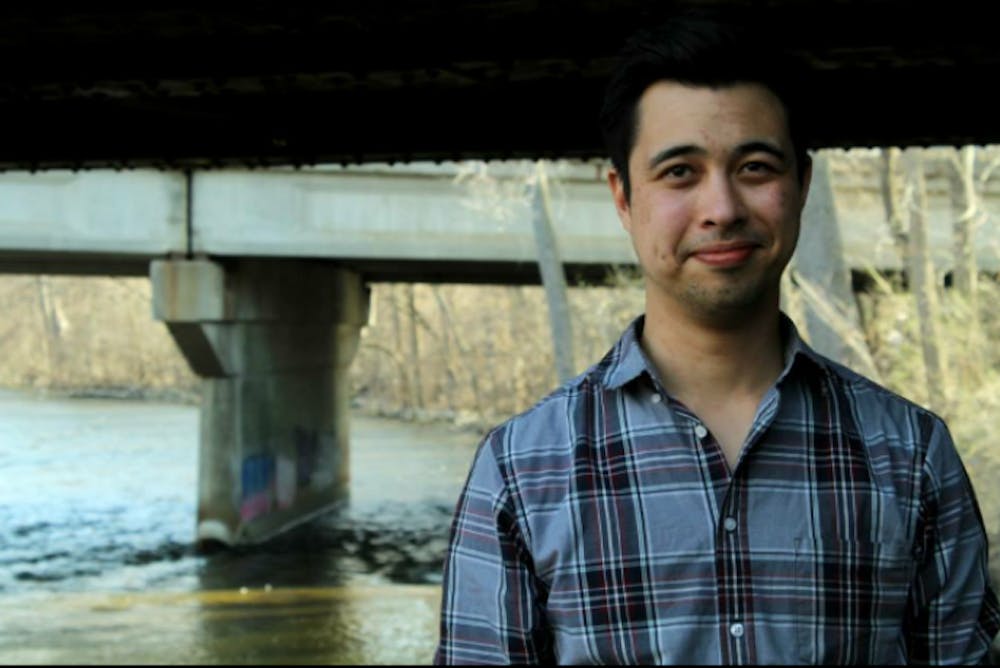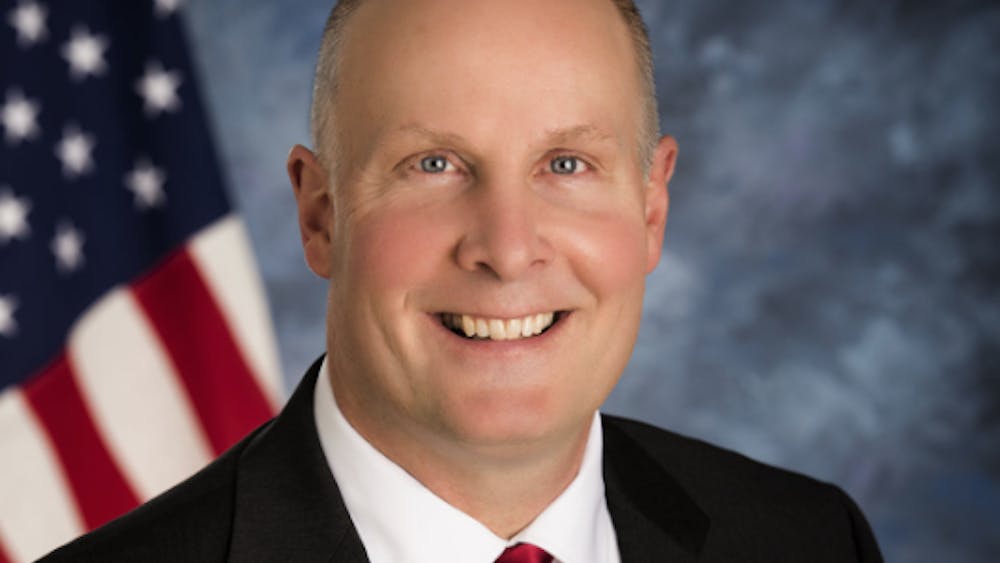Q&A: CM Life alumnus observes the pride, resilience Houston residence have show post-Harvey
Will Axford spent time at Central Michigan University as a journalism student before moving to Houston in May 2016
To Will Axford, covering the flood that's plagued Houston since Hurricane Harvey made landfall is a job but it’s also personal.
"When you're driving through (Houston) in the evenings, it's pretty eerie," he said. "Most of the stoplights were out and flashing red (immediately following Harvey). Most of the businesses were closed down.
"I don't want to say it was post-apocalyptic, but it definitely gave you that vibe."
A Texas resident since 2016, Axford is a Michigan native who graduated from Central Michigan University in 2010. During his time here, he worked for Central Michigan Life as a columnist and later the Opinion Editor. Axford made his way down south after accepting a job offer from a paper in the Florida Keys, but moved after cost of living became too expensive.
Now, working the police and courts beat for Chron.com — an online news site affiliated with the Houston Chronicle — Axford has found himself covering the aftermath of Harvey. He said the experience is something no class at CMU could have prepared him for, but provided an interesting insight into the charity of people during times of unimaginable strife.
CM Life: How did you first get interested in journalism?
Axford: When I was in high school, I didn't know what I wanted to be and the only thing I was really good at was writing essays on the fly.
I remember writing an article after a girl died in one of my classes; it was a reaction piece. One of my teachers worked with me to edit it, probably six or seven times it felt like, and then she told me that we could put it in (our school's) newspaper.
That was the time I decided I would do this for the rest of my life — or at least a good portion of it.
When did Harvey come up on your newsroom's radar as a big problem for Houston?
It was about two weeks ago we started seeing more reports about Harvey forming in the Atlantic Ocean. Then there were reports this had the potential to be a catastrophic hurricane. Every time you get those reports it's pretty 50/50. It's like, 'yeah there are models that show this projection which has the potential to be a big storm, but it also could dissipate before it hits land.'
By the middle of last week, it was pretty clear we had to get hurricane supplies and stuff like that.
At the beginning of hurricane season, which is the start of June and goes until November, the National Weather Service and National Oceanic and Atmospheric Administration (NOAA) told people (in the gulf) to expect a pretty busy hurricane season. There were other tropical storms before Harvey, so we were always watching (in the newsroom) to see what sort of weather we would get.
No one was expecting it to be as bad as it was. When it hit Corpus Christi, it pretty much leveled the city.
A lot of us have only been able to get a glimpse of Harvey's after effects through news reports. What is it like on the ground?
Thankfully, I've been able to work remotely from home. Our boss (at chron.com) doesn't want us out. All editors want us to be safe. Safety is a huge priority.
Most of the businesses are closed. A good majority of the highways I take are covered with water. You have to be careful when driving at night because it's hard to gauge street levels when they're underwater. You can't tell water depth when you're driving.
As a journalist, how do you prepare to cover something like this?
When you're a journalist, you've got to be quick on your feet and fast to react. Right when something comes up, you have to know who to call whether that's calling police officers or public safety individuals.
You have to think creatively: reach out to your sources on Facebook or Twitter, wherever you see (people) sending out messages. You have to keep on it and keep going until you get the information that readers need.
You've lived in Texas for over a year. How do you go about covering Harvey as Will the human being, and not just Will the journalist?
People in Houston, and the people who work for the Houston Chronicle, are very proud to be from Houston, to be a part of this city and to be from Texas. Every time we report, there's a little bit of pride; this is where we live, this is our city.
Every time you file a report, obviously you want to keep it unbiased. You also want to be as empathetic as possible to the people who have been affected by this tragedy. People have died. You have to go about it delicately, especially when faced with family members who may not want to share some personal information about that person — but other people need to know about it.
It's a balancing act. You have to (consider) everything before you hit publish.
Do you have a feel for what's needed in Houston and what's not? What's a way students in Mount Pleasant could help with this disaster?
Donations. There are a lot of websites going around right now requesting donations. There was actually an article I wrote (for chron.com) about how to donate and help Houstonians.
I would not recommend people come down and help unless they're a professional or they're a trained first responder. It is still very dangerous. The NWS has instructed people not to go 'sight-seeing' after the hurricane.
There will definitely be volunteer opportunities coming. If you're (reading) this now, Texas will be months, maybe even years down the road, and still be recovering.




